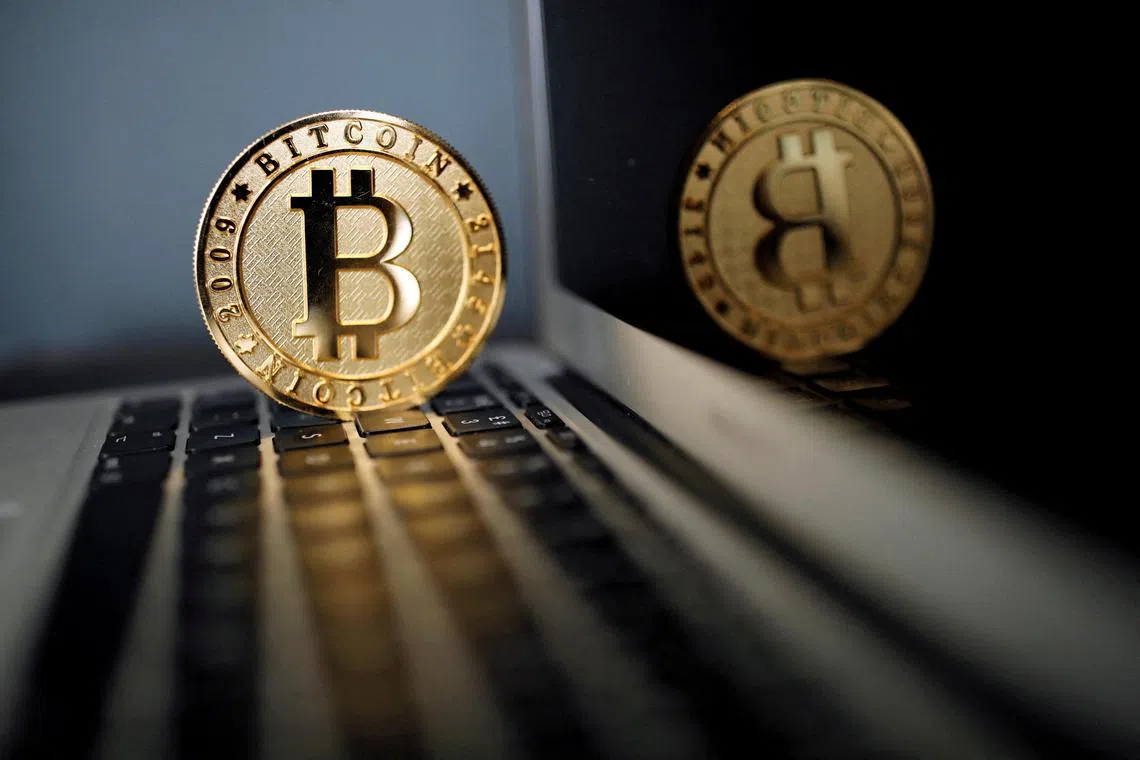Dubai’s appeal to crypto players may top that of Singapore, amid US clampdown
Sign up now: Get ST's newsletters delivered to your inbox

Hong Kong would allow retail investors to trade Bitcoin and Ether, while Dubai has been aggressively wooing players.
PHOTO: REUTERS
Follow topic:
SINGAPORE – Dubai could prevail over Singapore as the preferred location for some cryptocurrency players following moves by regulators in the United States to clamp down on the sector.
Singapore has long had an advantage over other nations given its more liberal approach to digital currencies, but rules are tightening here and some highly mobile crypto traders are likely looking elsewhere.
Mr Chia Hock Lai, board chairman of Blockchain Association Singapore, said: “The retail-focus players are more likely to favour Dubai over Singapore for obvious reasons like tightening regulations and small market size.”
Institutional players will prefer Singapore due to its status as a leading regional financial centre and regulatory clarity, even though rules here are tightening, which he said is “a global trend anyway”.
Mr Hayden Hughes, chief executive and co-founder of Singapore-based trading platform Alpha Impact, said there has been a pivot away from the US to Asia and the Middle East for a while now.
Hong Kong said on Monday that it would allow retail investors to trade in two popular tokens, Bitcoin and Ether, while Dubai has been aggressively wooing players and handing out licences.
“Hong Kong and Dubai have been very proactive in promoting their status as prospective crypto hubs, and so far, it looks like Dubai is winning. Many exchanges are now headquartered in Dubai and we can expect more firms to move eastwards to other markets in the near future,” said Mr Hughes.
Global investors will be cautious and inevitably favour places with clearer rules, such as Singapore, noted Mr Chen Zhuling, founder and chief executive of crypto staking provider RockX.
Other factors that come into consideration include the tax regime and talent pool, he said.
With the US starting to come down hard on crypto, some observers believe it is only a matter of time before Singapore regulators take a similar approach.
The Monetary Authority of Singapore has proposed making it harder for retail investors to speculate in crypto. It also suggested that players should not be allowed to lend out retail investors’ tokens and that they should separate customer assets from a firm’s own assets.
But these proposals are typically considered more relaxed than the US Securities and Exchange Commission’s (SEC) move to view stablecoins as securities.
Despite the regulatory woes that players face in the US, Mr Hughes noted that there remains a high degree of adoption and investor interest there.
US exchange Kraken was made to pay US$30 million (S$40.2 million) earlier in February to settle SEC allegations that the firm broke agency rules with its staking services or products that offer high returns.
Kraken also agreed to discontinue these offerings in the US.
Separately, blockchain infrastructure platform Paxos Trust has been ordered by the US authorities to halt issuing a Binance-branded token – the BUSD – which is the third-largest stablecoin.
The firm is now being investigated in the US.
Its unit received a licence last November to offer digital-token payment services in Singapore.


